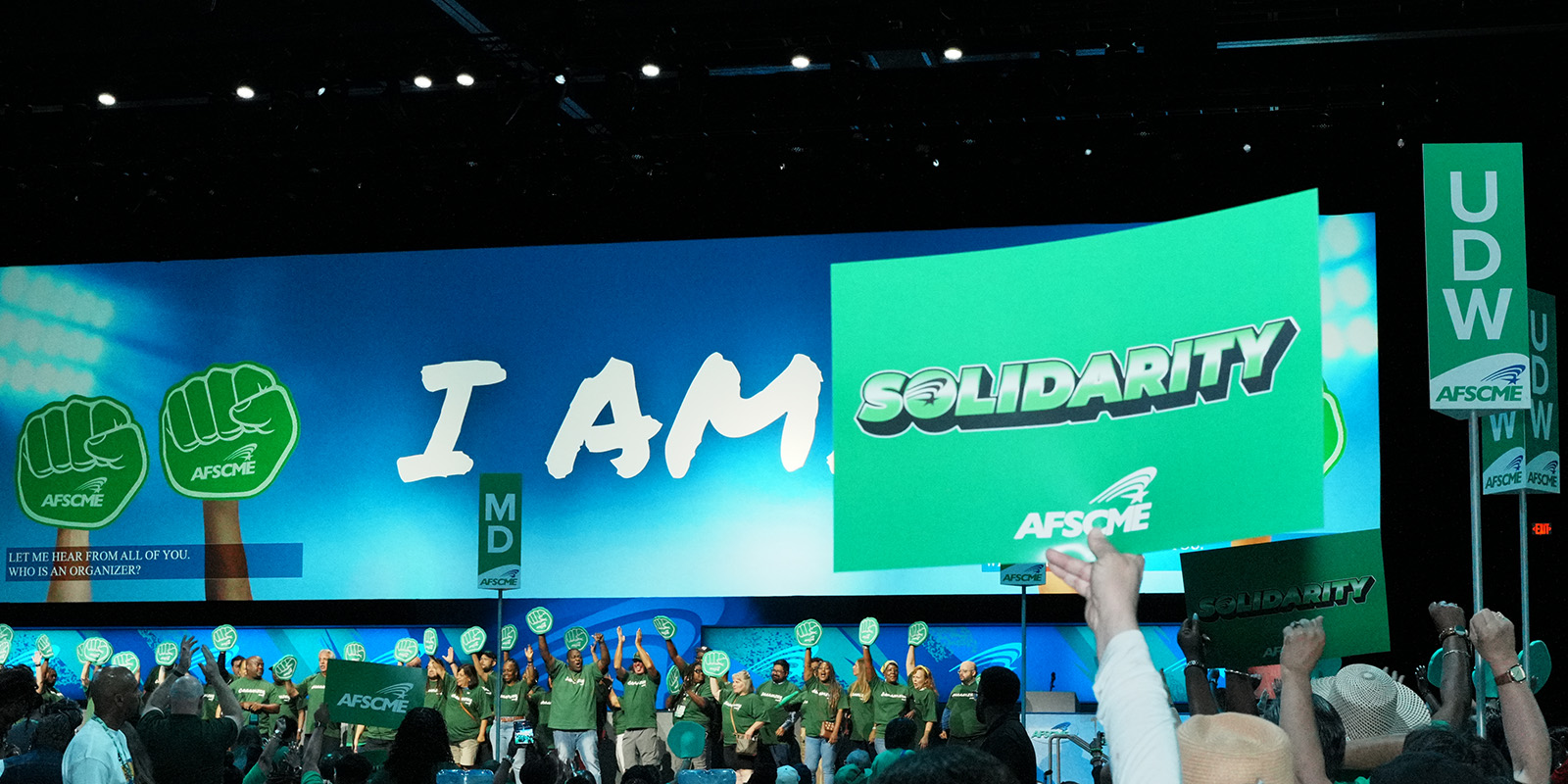Moving tribute honors the memory of the Rev. James Lawson, a civil rights giant
Delegates to the 46th AFSCME International Convention paid homage to the late Rev. James Lawson, who died in June at the age of 95. AFSCME President Lee Saunders called him “one of the greatest architects of social change our country has ever known.”
Lawson was a giant of the civil rights movement, a close associate of the Rev. Martin Luther King Jr. and a key strategist in the Freedom Rides and the lunch counter sit-ins. As a local pastor in Memphis, Tennessee, Lawson’s involvement in the storied 1968 Sanitation Workers’ Strike proved pivotal to its success.
Convention delegates watched a tribute video and Saunders spoke about Lawson from the stage.
“His role in building support for the sanitation workers among local faith leaders was essential to the strike's success,” Saunders said. “He believed it was his responsibility as a member of the clergy to become involved in this struggle. As he put it … ‘A pastor is supposed to meddle in anything that’s hurting his people. Anything that makes his people fragile and vulnerable … we are supposed to say ‘no.’ And we’re supposed to try and help them fight it.’”
The video featured reflections on Lawson’s legacy from AFSCME Secretary-Treasurer Emeritus Bill Lucy, who worked side-by-side with him in Memphis during the strike, and from Kent Wong, director of labor and community partnerships at the UCLA Labor Center.
“Jim was consistent in making the point that these are men who had a struggle but had no solution to the struggle because of the nature of the issue. And for those of us who were struggling to get their voices heard, Jim and his ability to interpret that struggle was unique,” Lucy said.
“For millions of sanitation workers,” Lucy said, “Jim Lawson was one of God’s angels.”
Wong said he taught a course on nonviolence with Lawson for 22 years.
“His work to recruit and train a new generation of civil rights leaders changed the course of U.S. history,” Wong said. “His work with AFSCME was decisive in framing the link between racial and economic justice and in building a broad-based movement that would unite the vast majority of working people in this country.”
Saunders said Lawson worked with AFSCME and the labor movement after the strike and throughout his career “because he understood that any struggle for human rights had to recognize and uplift the dignity of work.”
Six years ago, Lawson joined AFSCME members in Memphis for events and activities around the I AM 2018 campaign to commemorate the 50th anniversary of the strike.
Saunders recalled an anecdote about the aging civil rights leader.
“When it came time for the big march, Reverend Lawson and I took our place at the front. Honestly, I was worried about his ability to walk the whole mile and a half. So, I offered him one of the wheelchairs we had available. But Reverend Lawson, just shy of 90 years of age at the time, turned to me and said: ‘Lee, I’m going to walk … walk with you … arm in arm.” And we did just that. That was Reverend Lawson — always leading the brigade, standing up and never sitting down, proudly on the front lines,” Saunders said.
Pointing to a photo from the March showing Lawson walking with him hand in hand, Saunders said: “I keep that photo in my office, so even though I can no longer talk to Reverend Lawson and receive his wisdom, I can still look to him for inspiration.”
Lawson, Saunders said, “never forgot how to march. And he never forgot why we march. We march for social, racial and economic justice. We march for civil rights, labor rights and human rights. He was a giant, and we won’t see another like him soon.”



